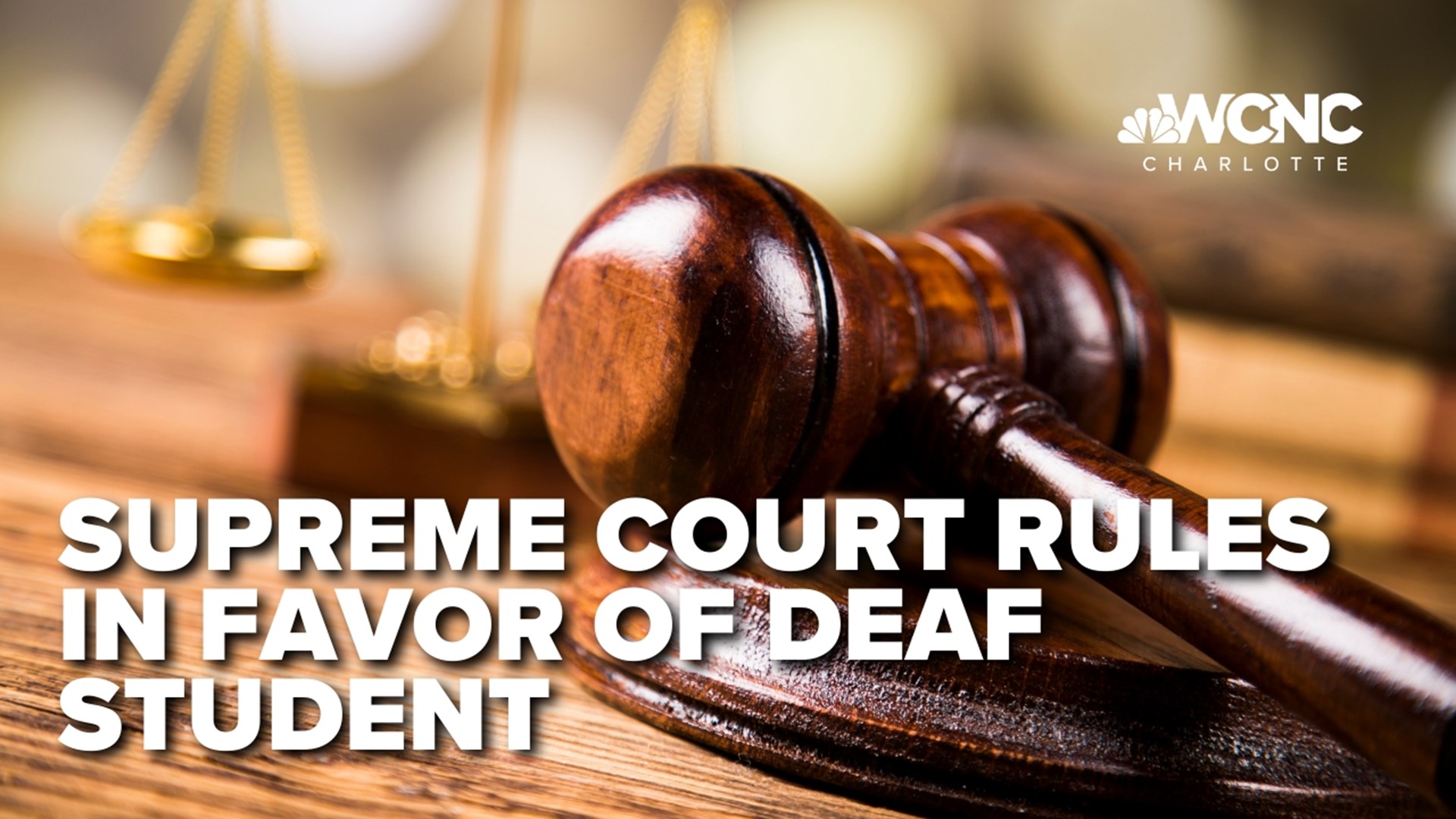CHARLOTTE, N.C. — There is now a glimmer of hope for some North and South Carolina families who are concerned their children with disabilities aren't receiving the right support in schools.
The Supreme Court ruled unanimously in favor of a deaf student in Sturgis, Michigan, who said his ability to communicate was permanently harmed by inflated grades and a lack of support.
Speaking with WCNC Charlotte through an interpreter, Rey Castillo, who is deaf, agreed with others who said they weren't surprised by what happened, sharing an experience he had with his daughter, who is also deaf, at a North Carolina school.
"The school is like, no she's just speech impaired. She doesn't need an interpreter," Castillo said. "So, parents even these days, still have to fight for the rights of their children to have access to proper communication in education."
According to North Carolina Department of Public Instruction data, more than 182,000 students have a disability.
In South Carolina, the state Department of Education lists more than 109,000 students with disabilities in recent data.
Laws like the Individuals with Disabilities Education Act (IDEA) are supposed to help protect them.
Kimberly Tissot is a South Carolina mother advocating for change through the nonprofit Able SC.
She and her son both have disabilities.
"None of these federal pieces of legislation are new. Schools have had decades of time to plan… but they often fail," Tissot said. "There needs to be reform."
Change may come more quickly and at a price for districts, according to Disability Rights North Carolina Attorney, Ginny Fogg, who said the ruling will likely allow easier access to settlements for affected families.
"There may be some school districts that take a look at some of their practices and reform those practices because they may feel more vulnerable now to a claim for money damages," Fogg said.
In an email to the AP, the Superintendent for Sturgis Public Schools said, "...every experience provides us with an opportunity to learn and grow....We will gain knowledge, insight, and understanding that will help us maximize every student’s true potential.”
Castillo and Tissot are hopeful the ruling will help other districts better serve students with disabilities as well.
Kayland Hagwood: Contact Kayland Hagwood at khagwood@wcnc.com and follow her on Facebook, Twitter and Instagram.

